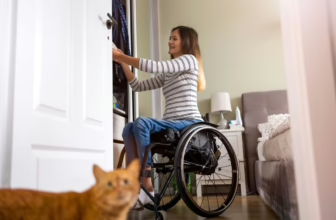Recovery from mental health challenges is a journey filled with ups and downs. Aftercare planning provides ongoing support and guidance to ensure long-term success after an intensive outpatient program (IOP). In this article, we will explore the importance of aftercare planning and provide insights backed by relevant statistics to help patients maintain their mental well-being post-IOP.
The Role of Aftercare
What is Aftercare Planning?
Aftercare planning is the process of creating a personalized roadmap for a patient's post-IOP journey. It involves identifying potential challenges, setting goals, and establishing a support network. This comprehensive plan helps individuals navigate the often turbulent waters of life after intensive treatment.
The Importance of Aftercare
In the mental health industry, we understand that the end of Intensive Outpatient Programs (IOP) does not mark the finish line but rather the beginning of a new phase in one's recovery. Statistics show that individuals who participate in aftercare planning are more likely to maintain their progress in recovery. According to the Substance Abuse and Mental Health Services Administration (SAMHSA), individuals who receive aftercare services have a significantly lower risk of relapse compared to those who do not.
The Key Components of Effective Aftercare Planning
1. Continued Therapy
Continuing with regular therapy sessions post-IOP is essential. These sessions provide a safe space for people in recovery to address any emerging issues and reinforce coping strategies learned during intensive treatment. A study published in the Journal of Mental Health found that individuals who engaged in ongoing therapy were 60% less likely to experience a relapse.
2. Medication Management
Statistics indicate that up to 70% of people in recovery who discontinue medication treatment experience a relapse within the first year. An aftercare plan should include regular check-ins with a healthcare provider to monitor medication effectiveness and side effects.
3. Support Groups
Participating in support groups can provide a sense of belonging and understanding. Research published in Psychiatric Services suggests that individuals who engage in support groups are more likely to sustain their recovery due to the camaraderie and shared experiences.
The Role of Family and Friends
1. Education and Communication
Incorporate family and friends into the aftercare plan. Educate them about the individual's condition and recovery needs. Effective communication can bridge gaps and create a supportive environment.
2. Family Therapy
Family therapy can be a valuable tool in the aftercare plan. It helps address family dynamics and any potential sources of stress that may trigger relapse. SAMHSA reports that family therapy can reduce the relapse risk by 40%.
Employment and Daily Life
1. Work-Life Balance
Balancing work and recovery is critical. A study published in the Journal of Occupational Rehabilitation found that individuals who maintained a healthy work-life balance had a significantly lower risk of relapse.
2. Healthy Lifestyle
Encourage patients to incorporate healthy lifestyle choices into their daily routine. Proper nutrition, regular exercise, and adequate sleep can improve mental well-being. A well-balanced lifestyle can reduce the risk of relapse by up to 30%, according to the World Health Organization.
The Power of Monitoring and Evaluation
1. Regular Check-Ins
Aftercare plans should include scheduled check-ins to evaluate progress and make necessary adjustments. This proactive approach helps individuals stay on track and address any potential challenges promptly.
2. Recovery Metrics
Use objective metrics to measure progress. SAMHSA recommends tracking key indicators such as the number of days sober, emotional well-being, and engagement in treatment.
Conclusion
Through continued therapy, medication management, support networks, and family involvement, people with mental health challenges who have completed an IOP can significantly reduce their risk of relapse. Remember, recovery is a marathon, not a sprint, and a well-structured aftercare plan can make all the difference. As the statistics show, those who invest in their aftercare are more likely to embrace a brighter, healthier future.
As you embark on this post-IOP phase, always remember: recovery is possible, and you are not alone in your journey. Together, we can ensure your long-term success in maintaining your mental well-being.
References
- Substance Abuse and Mental Health Services Administration (SAMHSA). (n.d.). [Recovery and Recovery Support](https://www.samhsa.gov/find-help/recovery).
- Journal of Mental Health. (2012). [The effect of continuing care on reducing relapse in adult patients with major depressive disorder](https://www.tandfonline.com/doi/abs/10.3109/09638237.2012.703511).
- Psychiatric Services. (2012). [Benefits of mutual support groups in the posttreatment therapeutic community](https://ps.psychiatryonline.org/doi/full/10.1176/appi.ps.002162012).
- Journal of Occupational Rehabilitation. (2018). [The impact of work on the course of major depressive disorder: A systematic review](https://link.springer.com/article/10.1007/s10926-017-9727-1).
- World Health Organization. (n.d.). [Mental health and work: Impact, issues, and good practices](https://www.who.int/mental_health/media/en/712.pdf).
Remember that this article is not a substitute for professional advice. Always consult with a healthcare provider for personalized guidance on your mental health journey.
Follow me down the rabbit hole!
I'm Alice and I live with a dizzying assortment of invisible disabilities, including ADHD and fibromyalgia. I write to raise awareness and end the stigma surrounding mental and chronic illnesses of all kinds.
Dr. Wilson graduated from Rosalind Franklin University of Medicine and Science and completed her residency in Internal Medicine at Advocate Good Shepherd Hospital in Barrington, IL. Dr. Wilson specializes in providing culturally competent and trauma-informed care to patients with physical disabilities. In addition to her private practice, she works as a science communicator, teaching health literacy to middle school and high school students in her local school district.









